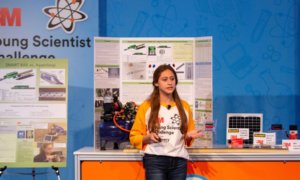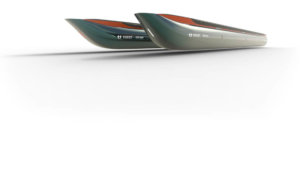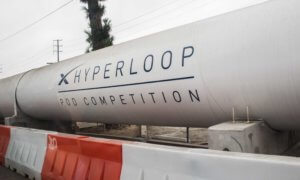While it’s been a couple years since Elon Musk released a paper outlining the concept of a long-distance, high-speed transportation system called Hyperloop, his vision seems like it will soon be realized. Along with his own Hyperloop design, Musk called for competition to propel the technology forward, resulting in a University of Munich Hyperloop Pod breaking 200 mph and the Virgin Hyperloop One improving on that record with a speed of 220 mph. Fueled by competition, Hyperloop Transportation Technologies (HTT) has recently announced in a press release that they are about to begin testing hyperpods in Toulouse.
HTT plans to assemble two test tracks, one that is 320 meters in length and the other 1 kilometer. The former route will begin testing this year while the latter will be completed in 2019. The 1 kilometer route will be built more towards Elon Musk’s original specifications with 5.8 meter tall pylons.
Currently, HTT is waiting on the delivery of its first test pod. Theoretically, the hyperloop pod should reach speeds of 760 mph, the speed the Virgin Hyperloop One was theoretically capable of going. Compared to the Virgin Hyperloop One, HTT’s tested pod is 0.7 meters wider, a design choice that could become popular as it affords more passenger space by seating between 28 and 40 people.
HTT have stated that the technology is no longer just a cool concept, but something that will be available in the near future:
“We have agreements in place in nine countries where we’re working on feasibility and regulations. We have a research center for freight and logistics in Brazil and a facility in Toulouse where we’ll deliver the first full-scale passenger capsule. Hyperloop is no longer a concept, it has become a commercial industry.”
Follow TechTheLead on Google News to get the news first.
























